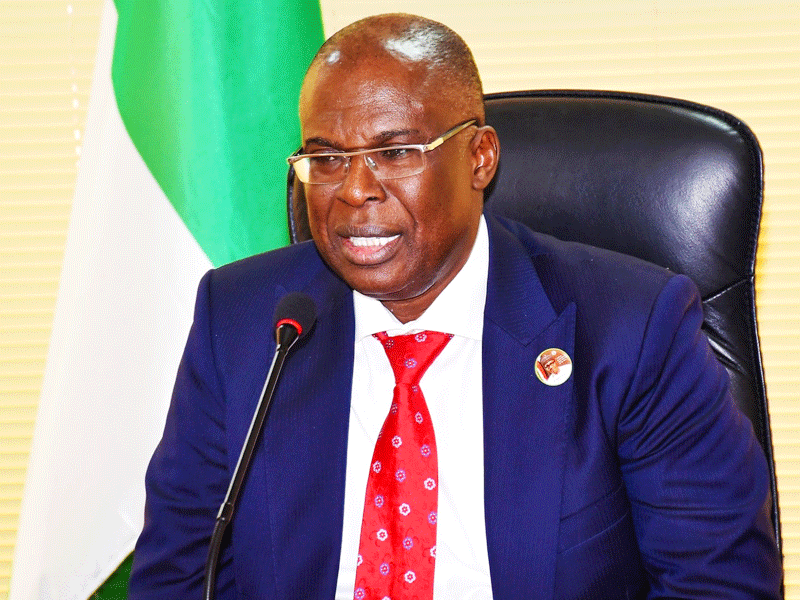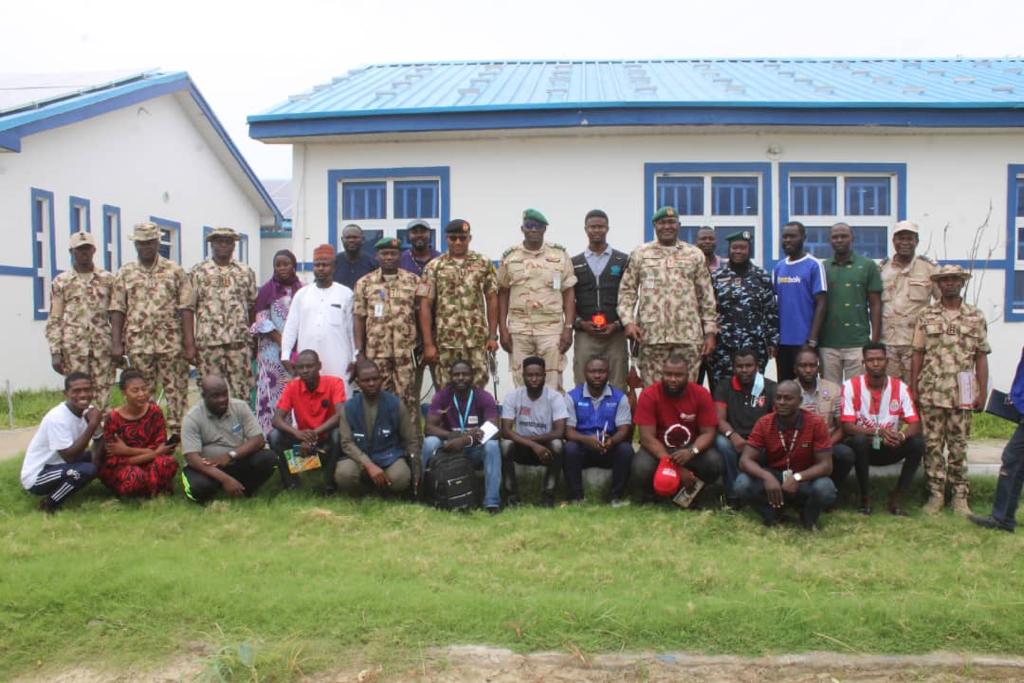Timipre Sylva’s Second Coming In Bayelsa State
By Ike Okonta
It is not widely known, but Timipre Sylva, the immediate past Minister of State of Petroleum Resources, wanted to be a writer when he graduated from the University of Port Harcourt in the mid-1980s. He has a creative and resourceful mind, and he felt at the time that deploying it in the service of literature was the career for him. After graduation, public service beckoned instead, and this new path, culminating in his becoming governor of Bayelsa State in 2007 took the place of literature.
There is however a sense in which it can be said that Timipre Sylva has always been a writer in politics. On assuming the governorship in Bayelsa State at the time, his cabinet was chockful with creative types. He charged them with turning the fortunes of the young state around, and his administration was marked by a certain air of purposefulness and can-do attitude. Sylva’s laudable plans for the state were however truncated when he fell out with Goodluck Jonathan, Vice President of the country at the time. Jonathan is also from Bayelsa and was Sylva’s immediate predecessor as governor.
Following President Umaru Yar’Adua’s death in office, Jonathan became President and wasted no time in intervening directly in the political affairs of Bayelsa State. He made it clear that he was determined to ensure that Timipre Sylva did not win a second term as governor, and he executed this plan with brutal efficiency despite Sylva’s efforts to make peace with him. When Sylva lost his office, he took it with calm. He was later to join the opposition All Progressives Congress (APC) and carefully nurtured the party in Bayelsa State into a formidable force, so much so that in the 2019 governorship election the APC actually won Bayelsa State but was denied the prize because of a technicality.
It is significant that Timipre Sylva did not present himself for office in 2019, choosing instead to back one of his lieutenants. When President Buhari won re-election he tapped Sylva for the post of Minister of State of Petroleum. While he was minister, Timipre Sylva made no secret the fact that his heart lay in Bayelsa State, and that he wanted to return to complete his eight years as governor. He visited Yenagoa, the capital regularly and always commented on the travails of his people under the rulership of the Peoples Democratic Party, led by Governor Duoye Diri. He made it clear time without number that he was anxious for Diri’s first term to end so he could test his popularity in the polls again.
That time has come. In November the people of Bayelsa State will come out to vote, and Timipre Sylva is flying the flag of the APC. He has said on record that the experience of his firm term has prepared him for the challenges ahead, and that he has studied carefully the mistakes of the various PDP governors who succeeded him, and that he is determined to correct these mistakes. He has also said that the lot of the ordinary people in the state is now even worse that when he was governor, and that the test of his governorship, if he is elected, is to change the lives of the people for the better.
There is no doubt that Bayelsa State and the wider Niger Delta region are in a terrible condition, socially and economically. The Niger Delta Development Commission (NDDC), established by the Obasanjo administration in 2000 has not delivered. Indeed, the Commission is characterized more by corruption and incompetence than delivering the dividends of democracy to the people of the Niger Delta. Before he left office, President Muhammadu ordered a forensic audit of the NDDC but curiously refused to publish the result. The people of Bayelsa State have not derived any tangible benefits from the existence of the Commission.
Nor have the people of Bayelsa State profited from the 13 percent derivation which accrues to the coffers of the state every month. NGO leaders in the state have made it clear that successive governors in the state routinely diverted the 13 percent derivation to their private pockets and that if the money had been spent in the interest of the public, Yenagoa, the state capital would have had pipe-borne water and other social amenities today. They also point to the lack of roads within the city, and also the absence of intra-state roads and lament the corruption and sheer wickedness of the state’s past leaders.
Even more worrisome, the Federal Ministry of Niger Delta Affairs has, since inception in 2010, not been able to draw up a masterplan with which the social and economic problems of Bayelsa State and the other states within the ministry’s purview can be tackled. Leaders of thought in the State believe that a new Timipre Sylva government should in fact begin by drawing up such a plan for the state and convening a stakeholders conference to obtain the ordinary peoples’ buy-in of this plan. It is only when the people have a clear idea of what their leaders want to do on their behalf, and how they intend to execute this plan, that they will give their support.
When General Sanni Abacha created Bayelsa State in 1996, the expectation was that this first wholly Ijaw State would leap to the forefront of states in the country in a matter of time. This has not happened, owing in part to the lackluster leadership it has been saddled with since inception. Even Goodluck Jonathan, a Bayelsan who was president of the country from 2010 to 2015 could not use the instrument of his powerful office to steer the dividends of democracy in the state’s way. All eyes are therefore now on Timipre Sylva’s second coming and the hope is that he would have learnt from the mistakes of his predecessors and has thus readied himself to deliver the goods if he is elected governor the second time.
To put it bluntly, the fate of Bayelsa State now hangs in the balance, and rid of all political campaign rhetoric, the expectation is that Timipre Sylva will not only walk the talk but prove a pleasant surprise to a long-suffering people.
*Dr Okonta was until recently a Leverhulme Early Career Fellow in the Department of Politics, University of Oxford. He now lives in Abuja.



